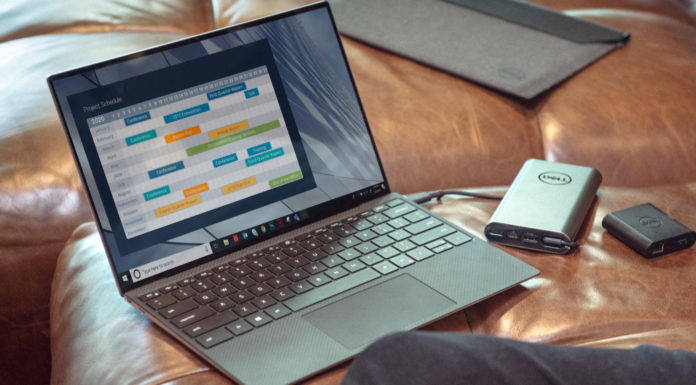As a small business owner, you know the importance of keeping your company’s sensitive information secure. With Macs becoming the go-to choice for businesses, it’s crucial to take steps to protect them from cyber threats.
Fortunately, there are plenty of ways to safeguard your Macs without breaking the bank. From the best free VPN for Mac to strong passwords, here are tips to keep your small business safe and sound.
So without any further delays, let’s dive in!
Securing Mac Computers in Small Business Companies
Use Strong Passwords
To keep your Mac and confidential data safe from hackers, creating robust passwords is crucial. A strong password should consist of a combination of uppercase and lowercase letters, numbers, and special characters. Avoid using predictable passwords like your birthdate or name, and refrain from using the same password for multiple accounts.
Remember, a simple password is an invitation to cyber criminals to access your data. So, take the time to create complex passwords to protect your Mac and keep your sensitive information secure.
Keep Your Operating System Up-to-date
Keeping your Mac operating system up-to-date is one of the easiest ways to safeguard your device from security threats. Apple frequently releases security updates and patches for macOS to address known vulnerabilities and defend your system against new risks.
To ensure your Mac remains protected, regularly check for updates and promptly install any available updates. This simple step can go a long way in keeping your system secure and preventing unauthorized access to your valuable data.
Install Antivirus Software
Protecting your Mac from malware and viruses is crucial, and antivirus software is a must-have tool for this purpose. There are numerous antivirus software options in the market, including both free and paid versions.
It’s important to select trustworthy antivirus software and regularly update it to ensure your system is shielded from the latest cyber threats. With the right antivirus software, you can protect your Mac and sensitive data from hackers and malware, giving you peace of mind and added data protection and security for your small business.
Enable Two-Factor Authentication
Protecting your Mac with an extra layer of security is a smart move, and two-factor authentication can help you achieve just that. By requiring a verification code in addition to your password to access your account, it makes it much harder for cybercriminals to hack into your system.
Activating two-factor authentication is simple and can be done in the Security & Privacy settings of your Mac. Once activated, you can breathe easy knowing that your sensitive information is safe and secure from unauthorized access.
Use a Firewall
If you want to protect your Mac and business network from cyber attacks, enabling the built-in firewall is a smart move. This network security tool is designed to monitor and regulate incoming and outgoing network traffic based on predefined security rules, making it much harder for unauthorized parties to gain access to your system.
With the firewall enabled on your Mac, you can add an extra layer of security to your network and help safeguard your valuable data from hackers. It’s an easy and effective way to ensure your business remains secure and protected.
Disable Automatic Login
Leaving your Mac unprotected with automatic login can be risky, as anyone who has physical access to your computer can gain entry to your account without needing your password. Disabling this feature and requiring a password to log in every time adds an extra layer of security and helps keep your sensitive information and business data safe.
It may take a few extra seconds to enter your password every time, but the peace of mind it provides is well worth it. It’s a simple yet effective way to ensure that your Mac remains secure and protected.
Set Up a Standard User Account
Creating a standard user account is an effective way to enhance the security of your Mac. A standard user account has limited privileges, which means it cannot make changes to system settings, install software, or access sensitive files without administrator permission.
By setting up a standard user account, you can prevent unauthorized access to your sensitive data and minimize the damage caused by potential security breaches. This simple step can go a long way in securing your Mac and protecting your business from cyber threats.
Removing Caches and Cookies
Clearing caches and cookies regularly can help improve the security of your Mac by removing any stored data that could potentially be accessed by unauthorized users. Caches and cookies can also contain personal information, such as login credentials and browsing history, that can put your privacy at risk.
By regularly clearing your caches and cookies, you can ensure that your sensitive information is not easily accessible to cybercriminals. This can be done easily through the settings of your web browser and is a simple but effective step toward enhancing your Mac’s security.
Create a Backup
Creating a backup for your Mac is essential for ensuring the safety and security of your important data. Backing up your Mac regularly can protect your business from data loss caused by hardware failure, theft, or other disasters. You can use Apple’s Time Machine software to create an automatic backup of your entire system, or you can use cloud storage solutions like iCloud or Dropbox.
Whichever method you choose, creating a backup is a simple yet effective way to safeguard your data and ensure that you can recover it in the event of an unexpected data loss.
Protect Your Location Privacy
When you use your Mac, you may unknowingly share your location data with various apps and services. This could pose a privacy risk, especially if your Mac contains sensitive information. To protect your location privacy, you can adjust your Mac’s location settings to limit or disable location tracking.
Additionally, you can be cautious about giving apps permission to access your location data and review the apps that have access to your location information. By taking these steps, you can keep your location private and safeguard your personal information.
Wrap Up
As technology continues to advance, so do the risks of cyber attacks. It is essential for small businesses to take proactive measures to protect their sensitive data and prevent unauthorized access to their Mac computers. By implementing effective security practices and regularly updating your system, you can significantly reduce the risk of data breaches and other cyber threats.
Don’t wait until it’s too late, take action now to safeguard your business and its reputation. Remember, investing in cybersecurity is not an expense, it’s an investment in the long-term success and stability of your business.




































